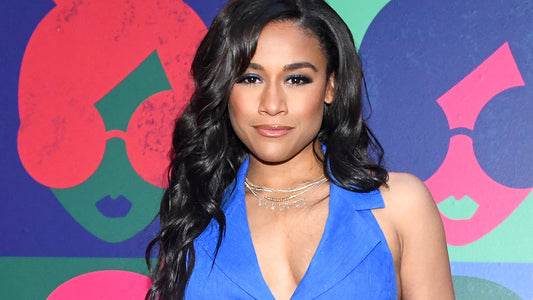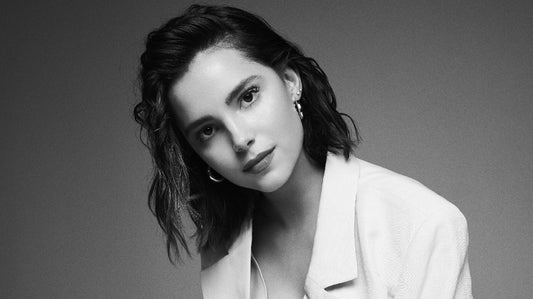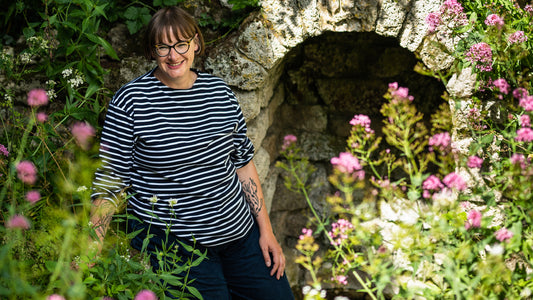
Photos: Tawny Newsome
Tawny Newsome is her own hit parade. She’s an actress on the Netflix comedy Space Force, a recording artist with a new album (Material Flats with Bethany Thomas), and a podcasting star whose show “Yo, Is This Racist?” tackles issues of social justice and equality with fellow improv artist Andrew Ti.
Here’s how Tawny plugs back into nature, why birds are never bored, and what happens when you go a little hard in pursuit of the perfect hiking selfie.
How has your relationship to nature evolved?
I was always in nature as a kid. My mom took me hiking a lot; we rode horses; we’d camp—sometimes with the horses!... My mom was getting her scuba certification, and I would snorkel while she did it. Nature was always part of my life, and I didn’t think too much about it… What really cemented it for me as an adult—like, in my late 20s—was when my boyfriend and I flew to Colorado. (He’s my husband now.) We were in Chicago, and we just wanted to be in some mountains! I was like, “I grew up doing this! Let’s plan a vacation where we hike and camp.” We climbed Pikes Peak in Colorado. And almost immediately, I was like, “What is my problem?! Why did I want to go so hard?”You OD’d on adventure?
That’s exactly it. When we got to the top, we saw there were people who had driven to the top. Meanwhile, we get up there and we’re shattered from two days of hiking. And I was like, “Wait, this wrecked my body, but it didn’t cost anything. If I’d only paced myself a little better, it would have been glorious. It’s still glorious.” Once, another hiker said to me, “The greatest things on this earth, you can get to them with money or effort.” I didn’t have any money, but I will always make the effort to get out into nature. I’ve seen the most beautiful corners of the world because I was willing to walk there. Sometimes, you just gotta walk.How do you know when it’s time to stop what you’re doing and just walk?
It's hard with devices. Your brain is not the only part of your body. Early people didn’t operate from a cerebral place, and there are a lot of amazing things that happen when you develop your mind. Absolutely do that. But put down your laptop or your phone sometimes and see how else you can connect to yourself, too.

You’re an actor, a musician, and a podcaster. How does nature help your creative process?
It’s the perfect other half of my work coin. If I’m working, I tend to be in the city; lately, I’ve been filming in Atlanta. I exist on set; I eat food on set; they drive us around so we don’t sweat off our makeup off or wrinkle our costumes. You preserve all your energy just for the camera. So then TV is very constrained. Movies are very constrained. You’re in this bubble just getting carted around. It's like a mobile Matrix pod! So when I’m on hiatus, the necessary flip side has to be nature. I take hikes and go to beaches or parks as often as I can when I’m not working to replenish that side of me.Your podcast explores how racism and daily life collide. What about racism and environmental justice?
It’s such a big thing! I think just as we have to acknowledge our own shared humanity, we have to think of the planet as one organism… I feel it really deeply. I can’t speak in an academic sense, but I know when I walk through a neighborhood in LA or Chicago, in lower income areas, there aren’t any trees. That’s racist and bad for the environment! The legislation doesn’t seem to care, or people’s attention doesn’t seem to hold those two things exist in the same space. That’s one example of so many examples. Neighborhoods with Black and brown people don’t get the kind of attention they deserve when it comes to the environment, or access to nature. Our neighborhoods are statistically more likely to lack a recycling pickup, get trees planted, have accessible parks or sidewalks so people can walk around… Those add to racial justice and environmental issues, and those are racial justice and environmental issues!Have you made any adjustments or swaps on behalf of nature lately?
My plastic use has really gone down. When I moved to a more rural place in California, I discovered there was no recycling here! Basically, now I live on a mountain. I have to take my trash half a mile down the mountain if I want it picked up, and that’s just trash—there’s no recycling. That made me confront how much plastic I was using. I love a Diva Cup, so I don’t use plastic for my tampons and pads. I’m still not great about it; I’ll be honest, but it’s all about getting better.Please tell us your favorite animal fact.
I love that crows and ravens can remember human faces, and hold a grudge and chase you for the end of your days. It’s very metal. They’re like, “Oh, you wronged me? I will follow you forever.” My husband once shooed a raven out of his workshop, and it flew up to the house and would not leave us alone for two days. I had to leave nuts outside the house for two days as an apology.At Wild Elements, our motto is, “Let good grow wild.” What does that mean to you?
There’s a weed. It’s called skunkweed. It’s a terrible name. You cannot smoke it; it does not smell; it’s just the most unfair name! But it has yellow flowers and curls at the top. Now, the temptation is to mow it down or get rid of it in some way, but I just let it grow. I learned this from a guy at the top of my mountain who’s lived there since 1946. He says, “When skunkweed is ready to go, you can push it away with your feet. Until then, it’s really pretty.” And you know, it feeds pollinators and animals. There are bees everywhere, and birds. It nourishes our whole area, and when it’s done, it goes its own way.



